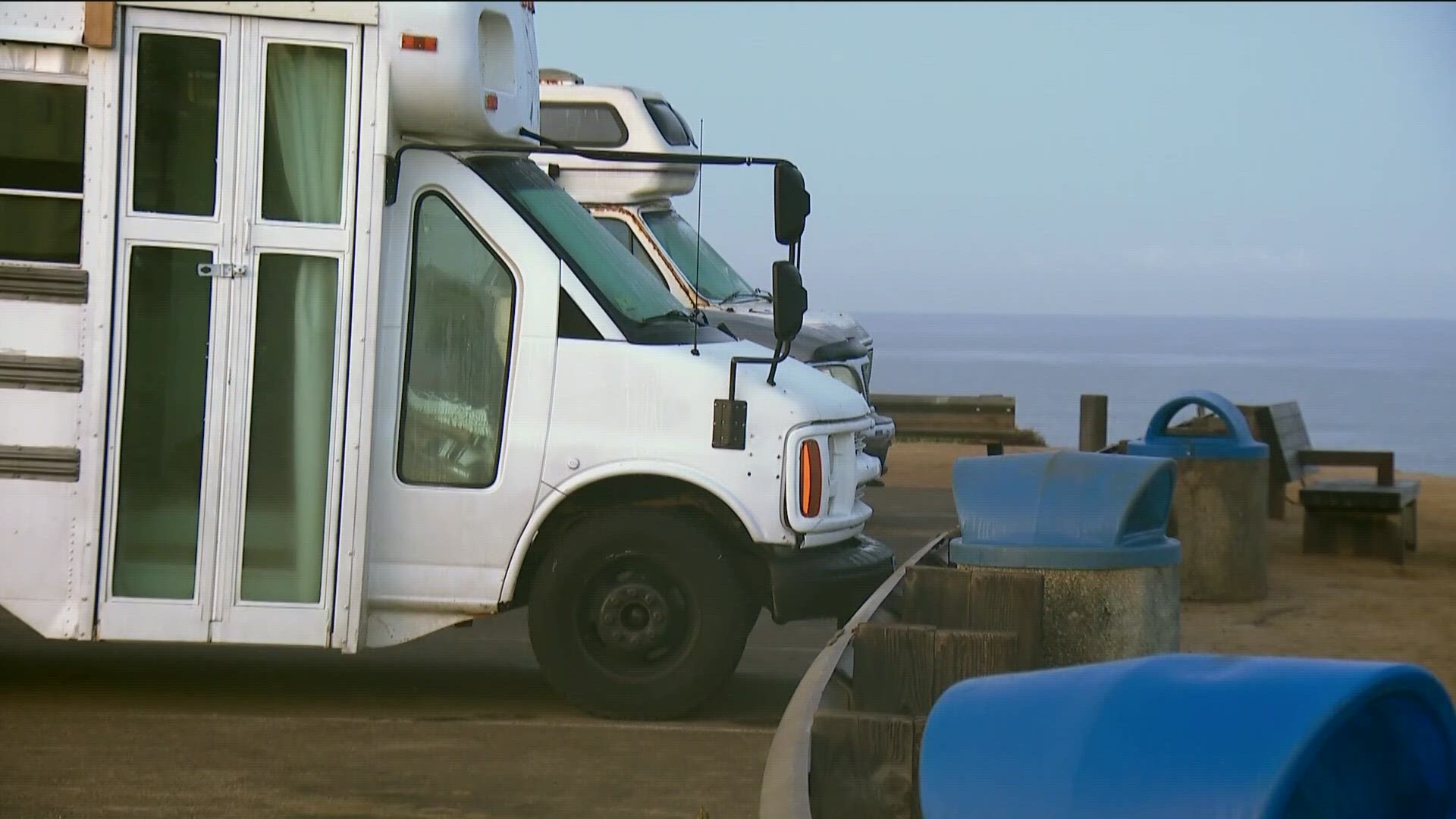SAN DIEGO — People who have nowhere else to go can now live in their vehicles and sleep in them overnight on the streets around San Diego.
Before now, people were at risk of being fined, getting towed and even getting arrested if they slept in their car or RV overnight. But the City of San Diego has come to a settlement agreement in a class action lawsuit to stop enforcing overnight parking laws.
It all hinges on this: As long as people have nowhere else to go, they can spend the night in their vehicle or RV.
How will police know if people have somewhere else to sleep?
There are four city-designated overnight parking lots in the city's Safe Parking Program.
The city is going to post on its website if there are spots at any of those parking lots. If there is no place for someone to park at any of those four lots for the night, they can park on the street.
Under the agreement, the City will forgive tickets and fines given from 2017 to the present. The ordinances that prohibit people from parking overnight will also be suspended for 3 years.
The City also agreed to create more Safe Parking Program lots, plus improve an existing lot for RVs in Mission Valley.
Class action lawsuit filed in 2018
Ann Menasche filed the class action lawsuit in 2018.
"That class is everyone who has lived in their vehicle at any time from 2017 to the present. If their only shelter is their vehicle, then they're part of our class and that relief applies to them," she said.
The suit challenged the ordinances that prohibited people from living in vehicles and parking oversized vehicles like RVs on city streets between 2 a.m. and 6 a.m.
"If there's no options for them to go, if they have no place to go, they don't get penalized," Menasche said. "If you’re just living in your vehicle, you should not have any problem with the VHO (Vehicle Habitation Ordinance) if you're a law abiding person.”
If police believe a crime is being committed in the vehicle, that’s a different story. But Menasche and the people she’s represented all these years, many of them disabled, say people living out of their vehicles are doing so because it’s their last resort.
“They are conscientious and honest and law abiding people. By not fining them and arresting them and criminalizing them, they're going to have much better opportunities to improve their situation," she said.
Agreement 'allows the reintegration of so many people'
Stephen Chatzky is one of 11 people named in the class action suit.
“It's so expensive when a vehicle is impounded," Chatzky said. "If it's a motor home, there's a towing fee, there's a storage fee and there's a lien placed on the vehicle. So it’s a minimum of $1,000 to get your home back. This agreement allows the reintegration of so many people to feel productive, to feel a part of the citizenry of San Diego."
In a statement, the City of San Diego said the settlement is a positive step forward for the city:
"This settlement is a positive step forward for the City. It allows us to enforce the oversized vehicle and vehicle habitation parking bans as long as there is space available in a safe parking lot, providing neighbors with the level of neighborhood services they deserve. In addition, this measure will result in more unhoused individuals finding the support they need through the Safe Lot Program. Finally, this settlement envisions future clarity from the Supreme Court on the appropriate measures cities may take to provide a safe and healthy environment for all residents."
CBS8 asked Menasche if people should be concerned about homeless people potentially parking on city streets and in neighborhoods.
“We need people, instead of blaming the victims of the crisis, they need to fight for what everyone needs which is decent affordable housing," she said.

